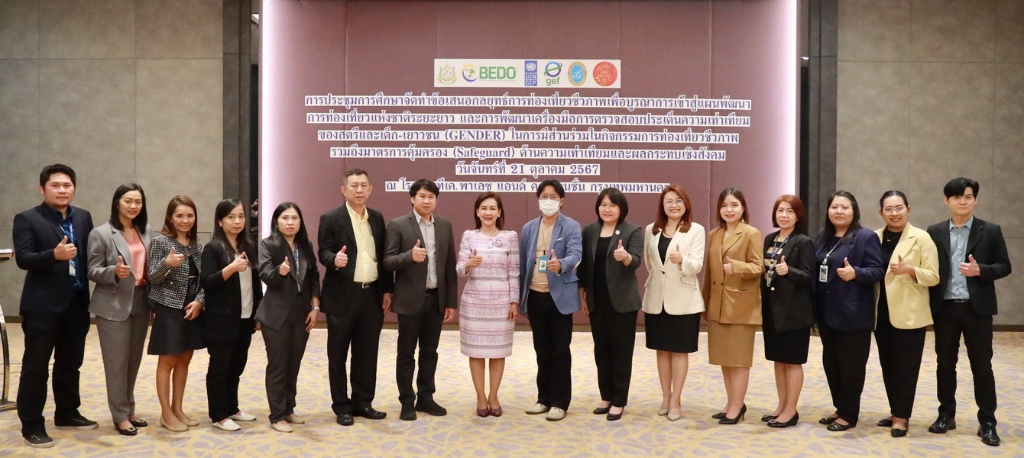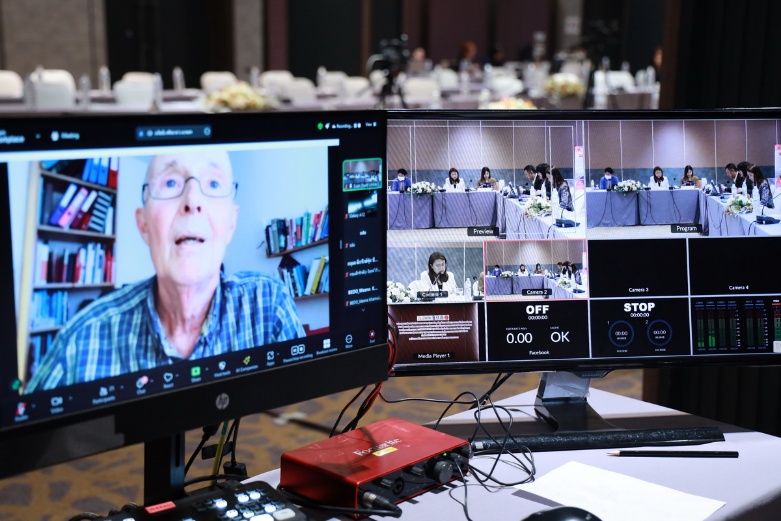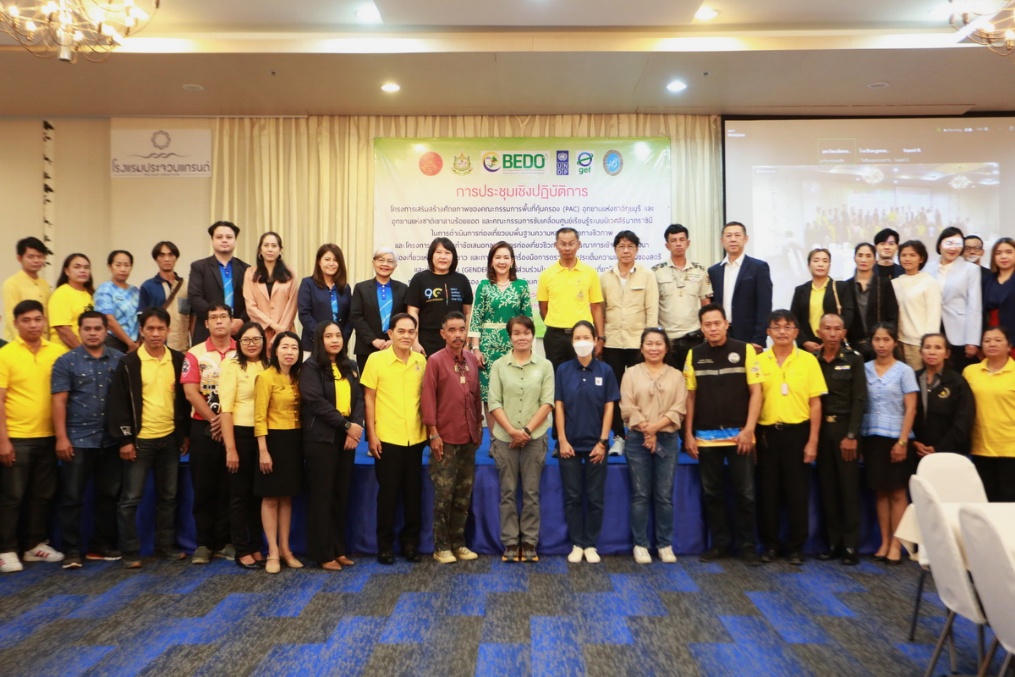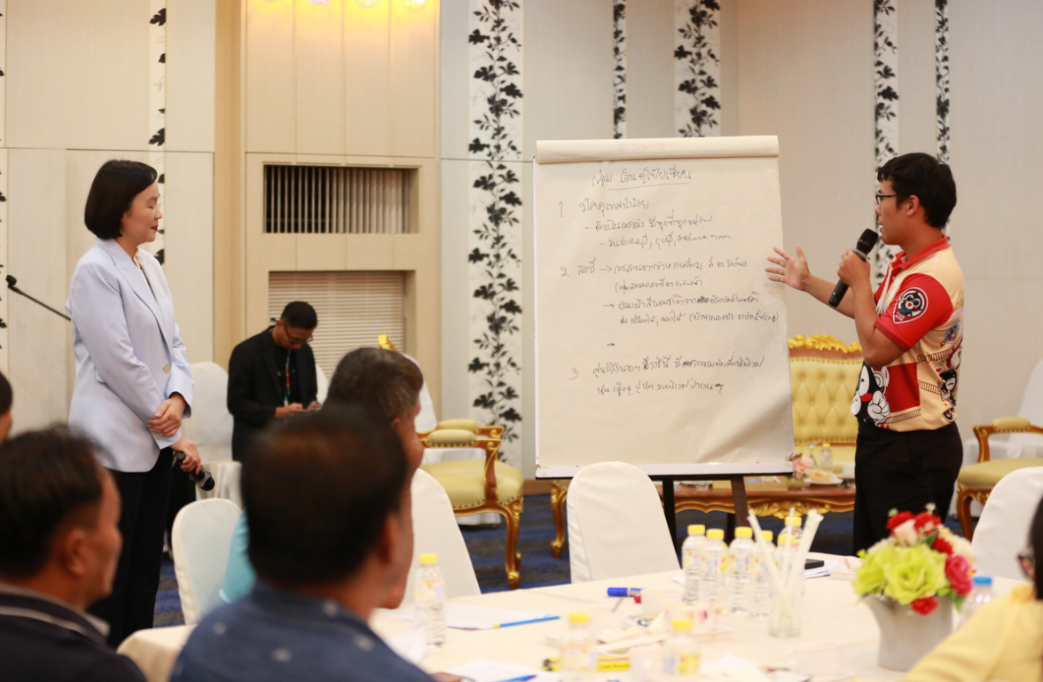Actions toward achieving the Sustainable Development Goals (SDGs), particularly SDG 13: Climate Action, are an urgent priority across all sectors. For organizations committed to creating sustainable impact, integrating environmental and risk management strategies in collaboration with government agencies and partner networks is essential.
Suan Dusit University, through the Environmental Center, Faculty of Science and Technology, in collaboration with the Bio-Based Economic Development Agency (Public Organization), conducted a study and assessment under the UNDP Social and Environmental Screening Procedure (UNDP-SESP) within the MBT-GEF 7 Project in Prachuap Khiri Khan Province. The study was implemented in accordance with Project-Level Standard 2: Climate Change and Disaster Risk, reflecting tangible collaboration in joint disaster preparedness planning as follows:
- Co-operative Planning for Climate Change Disasters
The study went beyond data analysis by providing policy recommendations aimed at enhancing preparedness and disaster response planning, emphasizing the integration of bio-tourism strategies into Thailand’s long-term national tourism development framework. The planning process also incorporated social dimensions, particularly through the development of gender and youth equality assessment tools (GENDER) to ensure inclusive participation in bio-tourism activities. Furthermore, social safeguard measures were established to promote equity and mitigate potential social impacts—key components of a holistic disaster preparedness and management framework in climate-vulnerable areas.


- Informing and Supporting Local or Regional Government Supporting local and regional government agencies in disaster monitoring and preparedness represents a key component of SDG Indicator 13.3.4 (Inform and Support Government). Under this objective, Suan Dusit University conducted an assessment following the UNDP Social and Environmental Screening Procedure (UNDP-SESP) in accordance with project-level standards. The study enabled relevant government bodies and stakeholders to identify and understand disaster risks within the target area comprehensively, focusing on the following dimensions:
• Areas vulnerable to natural hazards, including earthquakes, floods, landslides, strong winds, flash floods, and tsunamis.
• Climate-sensitive impacts, such as increasing rainfall, drought, temperature rise, salinity, and other extreme weather events.
• Indirect or direct escalation of climate risks caused by inappropriate land-use practices, such as development in flood-prone areas, which increase population exposure and vulnerability.
The collaboration between the university (academic institution), the Bio-Based Economic Development Agency (Public Organization) (government entity), and key stakeholders (including public, private, and non-governmental organizations) under the MBT-GEF 7 Project established a vital foundation for climate change adaptation. The project analyzed the impacts of climate change on bio-tourism sites, such as sea level rise, increasing temperatures, and more severe weather patterns, and produced policy recommendations emphasizing preparedness and risk mitigation.
A significant aspect of this initiative is the identification and management of contributing factors to climate change, such as increasing greenhouse gas emissions, and the establishment of social safeguard measures that account for social and environmental impacts. Furthermore, by incorporating gender equality and inclusive participation (GENDER) into strategic planning, the project strengthened social resilience, which lies at the core of equitable and comprehensive disaster adaptation.


